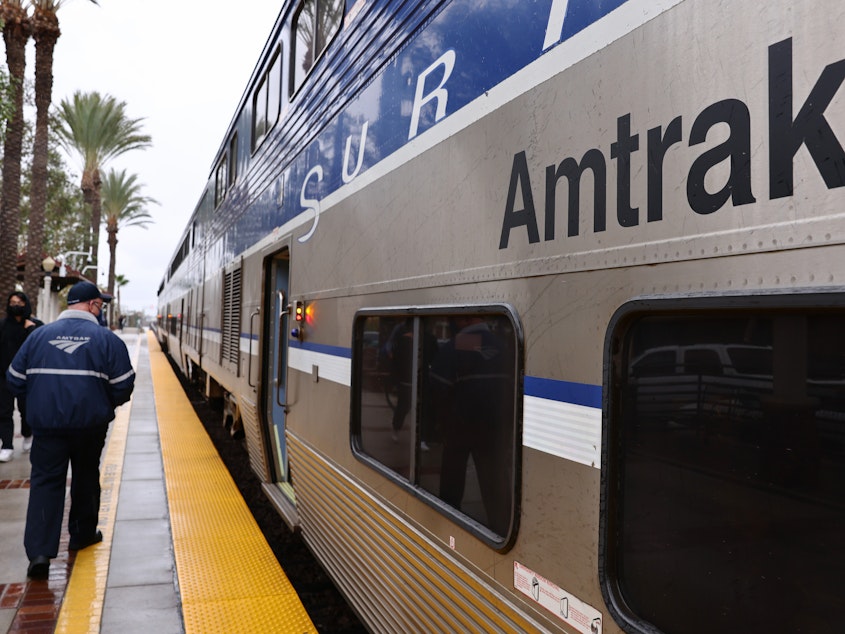Amtrak paid $2 million to travelers with disabilities in a discrimination settlement

The rail transportation company Amtrak has paid over $2 million to more than 1,500 people with disabilities who experienced discrimination while traveling by train or trying to, the U.S. Department of Justice announced Wednesday.
The money is part of a settlement agreement to resolve the United States' determination that the company violated the Americans with Disabilities Act by failing to make certain stations accessible to travelers with disabilities.
"These payments, as well as Amtrak's ongoing efforts to make rail stations accessible pursuant to our settlement agreement, bring both Amtrak and our nation one step closer to realizing the ADA's promise of equal opportunity for people with disabilities," said Assistant Attorney General Kristen Clarke of the Justice Department's Civil Rights Division.
The 2020 settlement resolves a lawsuit brought by the Justice Department against Amtrak. The Justice Department alleged Amtrak violated, and continued to violate, the Americans with Disabilities Act by failing to make stations in its intercity rail transportation system accessible, including to wheelchair users. Violations listed in the suit include inaccessible building entrances, bathrooms, elevators and passenger platforms.
In addition to compensating those who were discriminated against, Amtrak also agreed to "design at least 135 stations to be accessible, complete construction at 90 of those stations, and have at least 45 more under construction," over the next nine years. The company will also train staff on the ADA's requirements and implement a new system for evaluating ADA complaints at the company. Individuals were able to submit compensation claims up until May 29, 2021.
Sponsored
The ADA is the civil rights law that prohibits discrimination against people with disabilities by public entities and requires companies make "reasonable accommodations" so that people with disabilities have comparable access as people without disabilities have. When Congress passed the ADA in 1990, it required Amtrak to make its network of transportation accessible by 2010, but the Justice Department's investigation found Amtrak did not do that.
The Department of Justice began investigating Amtrak after receiving complains in 2011 and 2012 from people with disabilities who alleged that certain Amtrak stations were inaccessible, as well as a detailed complaint from the National Disability Rights Network the next year alleging the same.
In the suit, the Justice Department alleged, "Amtrak acted intentionally by failing to make its existing stations accessible," and "unless restrained by this Court, Amtrak will continue to violate the ADA and cause harm to individuals with disabilities."
Amtrak entered into the settlement agreement with the Justice Department to resolve the alleged violations of the ADA in December 2020.
Amtrak was criticized in 2020 after two riders who use power wheelchairs were asked to pay at least $25,000 for a train ticket for a two-hour ride that usually costs $16. After NPR's Joe Shapiro reported on the price and people with disabilities led protests, Amtrak reversed course and dropped the policy that caused the high bill.
Sponsored
A version of this story originally published in the Morning Edition live blog. [Copyright 2022 NPR]

